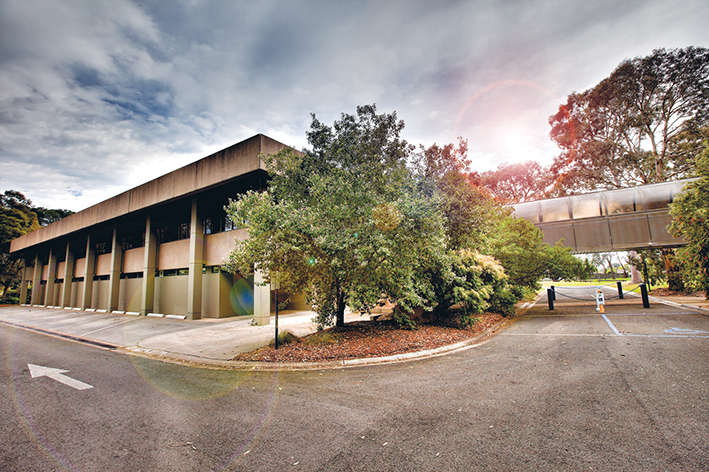MORNINGTON Peninsula Shire has pulled off a dramatic financial turnaround, cutting its projected ten-year deficit from $296m to just $3m in less than a year.
The change follows councillors’ adoption of the shire’s ten-year Financial Plan 2025-26 to 2035-36 at their public meeting on 30 October.
The plan now forecasts a $67.2m cash balance by 2035 – a significant shift from the $3m cash deficit projected last December.
The new plan includes financial levers to guide council decisions on long-term sustainability, which will also be “considered in detail” through the annual budget process.
Key findings reveal that from the fifth year of the plan, the shire expects to record steady underlying surpluses with the funds to be reinvested into critical infrastructure across the municipality, with a strong focus on fast-growing areas.
Net assets are forecast to rise from $3.75b in 2026 to $3.84b by 2036, driven by ongoing investment in new and renewed infrastructure.
Over the next decade, $3.5b will be spent on essential community programs and services to support the region’s growth.
Capital works will remain a major focus, with $515m earmarked for infrastructure projects.
Much of this will go toward maintaining and renewing existing community assets, as outlined in the shire’s Asset Plan.
Council also confirmed it will maintain the value of its $3.8b portfolio of property, infrastructure, plant, and equipment.
Deputy mayor Cr Paul Pingiaro said the results reflected strong fiscal discipline and a focus on long-term sustainability.
“We inherited some significant financial challenges and had to make some tough calls. But we’ve done exactly what the community would expect us to do and that’s to get our house in order,” he said.
“In December 2024, we were advised that if nothing changed the shire was heading towards a $296m cash deficit within ten years – that was a real wake up call.”
Pingiaro described the projected $67.2m cash balance as an “extraordinary turnaround,” adding that the plan provided “a clear responsible path forward”.
However, he noted that “in order to achieve our required surplus funds to keep the organisation running and servicing our community, there’s still more we can do”.
“We still need to introduce some challenging leavers but they are less than originally proposed now. Importantly, this plan also ensures we continue to meet our asset renewal targets, meaning our roads, buildings and facilities remain safe and functional in the long-term.
“Just like every household, our council budget must juggle the rising costs, inflation and community expectations all by keeping services running and infrastructure maintained.”
The plan was shaped by feedback from more than 3500 community members earlier this year.
The shire’s ten-year Asset Plan was also adopted at the council meeting. Together with the Financial Plan, it highlights more than $26m in savings found in recent years, including $10m in the 2025-26 budget.
In terms of rate capping the Financial Plan noted this “has challenged council’s long-term financial sustainability,” with the “effects of reduced income” evident through an average rate income of $1653 per rateable property in 2024-25.
“Our average rate is approximately $350 lower than other interface councils and $400 below the state average, representing a loss of around $40-42m in annual rates income,” the plan said.
“Over time lower average rates contribute to a decline in service levels due to the compounding effect of the cap.”
The Financial Plan was endorsed at the meeting with Cr David Gill the only councillor to vote against it. He said he disagreed with the plan’s direction and felt community priorities were not being addressed.
“It’s not about waiting for the money – it’s about having the right priorities,” he said.
“I’ve never seen a council on the Mornington Peninsula that didn’t have a balanced budget, and I don’t believe we’ll have a balanced budget next year or at the end of ten years; we will make adjustments along the way,” he said.
Mayor Cr Anthony Marsh said balancing the books did not necessarily reflect good financial management.
“Balancing a budget just means your expenses don’t exceed your revenue. It doesn’t mean you’ve spent money well, so it’s not the goal or the outcome… balancing a budget means you’re not in a deficit year on year,” he said.
Marsh said the adoption of both plans “set a clear and balanced direction for how we’ll plan, invest and deliver for the peninsula over the coming years.”
“Thank you to everyone who took part in shaping these plans. Your ideas, insights and feedback have helped us create a strong foundation for our future,” he said.
Cr Kate Roper, a councillor since 2016, emphasised that “the last two councils did not let things slide” but said “we do have to be financially responsible, and we’ve made some further hard decisions”.
First published in the Mornington News – 4 November 2025




